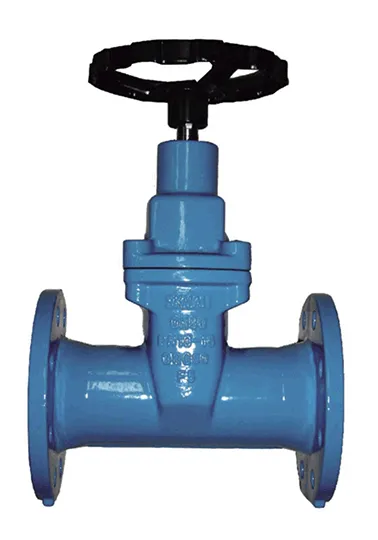10 月 . 30, 2024 21:49 Back to list
knife gate valve pneumatic
Pneumatic Knife Gate Valves An Overview
Knife gate valves are essential components widely used in various industries for controlling the flow of liquids, slurries, and gases. Their unique design integrates a sharp-edged gate that slices through media, making them particularly effective in handling viscous fluids and solids. When coupled with pneumatic actuation, knife gate valves offer significant advantages, enhancing precision, speed, and control in many industrial applications.
Structure and Functionality
The primary function of a knife gate valve is to provide a reliable and efficient means of isolation. The valve consists of a gate that moves vertically within the body, allowing for a full flow or complete closure. The design is particularly advantageous in applications where the flow must be quickly stopped or started, as the gate's movement creates a tight seal against the valve seat.
Pneumatic actuation utilizes compressed air to power the valve mechanism, providing quick response times and reducing the need for manual operation. The integration of pneumatic systems allows for automation, which enhances operational efficiency and reduces labor costs. Pneumatic actuators can be designed for different actuation speeds and force requirements, enabling tailored solutions for specific applications.
Advantages of Pneumatic Knife Gate Valves
1. Efficiency and Speed Pneumatic actuation allows for rapid opening and closing of the gate, which is crucial in processes requiring timely manipulation of flow.
2. Minimal Space Requirement Compared to other types of actuators, pneumatic actuators typically require less space, making them ideal for installations where space is at a premium.
knife gate valve pneumatic

3. Low Maintenance Pneumatic knife gate valves are generally easier to maintain than their electric counterparts. The simplicity of the actuator mechanism reduces the risk of mechanical failure, leading to longer service life and lower operational costs.
4. Robust Performance in Challenging Conditions These valves excel in harsh conditions, including high temperatures and pressures, and are often constructed from durable materials suitable for abrasive and corrosive environments.
5. Safety and Reliability Pneumatic systems can be designed with fail-safe mechanisms that ensure the valve remains in a safe position during the event of a power failure, enhancing the overall safety profile of industrial processes.
Applications
The versatility of pneumatic knife gate valves makes them suitable for a wide range of applications across various industries. They are commonly used in wastewater treatment, mining, food processing, chemical manufacturing, and power generation. In wastewater management, for instance, these valves effectively control the flow of sludge and slurry, enabling efficient treatment processes. In chemical plants, their ability to handle corrosive substances ensures reliable operation and safety.
Conclusion
Pneumatic knife gate valves represent a vital component in modern industrial systems, offering efficiency, safety, and reliability in flow control. Their unique design combined with the benefits of pneumatic actuation allows for versatile applications across various sectors. As industries continue to seek ways to improve process efficiency and reduce operational costs, the significance of pneumatic knife gate valves will undoubtedly grow. By investing in this technology, facilities can enhance productivity while ensuring they meet the demands of increasingly complex operational environments.
Share
-
Understanding the Differences Between Wafer Type Butterfly Valve and Lugged Butterfly ValveNewsOct.25,2024
-
The Efficiency of Wafer Type Butterfly Valve and Lugged Butterfly ValveNewsOct.25,2024
-
The Ultimate Guide to Industrial Swing Check Valve: Performance, Installation, and MaintenanceNewsOct.25,2024
-
Superior Performance with Industrial Swing Check Valve: The Essential Valve for Any SystemNewsOct.25,2024
-
Industrial Swing Check Valve: The Ideal Solution for Flow ControlNewsOct.25,2024
-
You Need to Know About Industrial Swing Check Valve: Functionality, Scope, and PerformanceNewsOct.25,2024